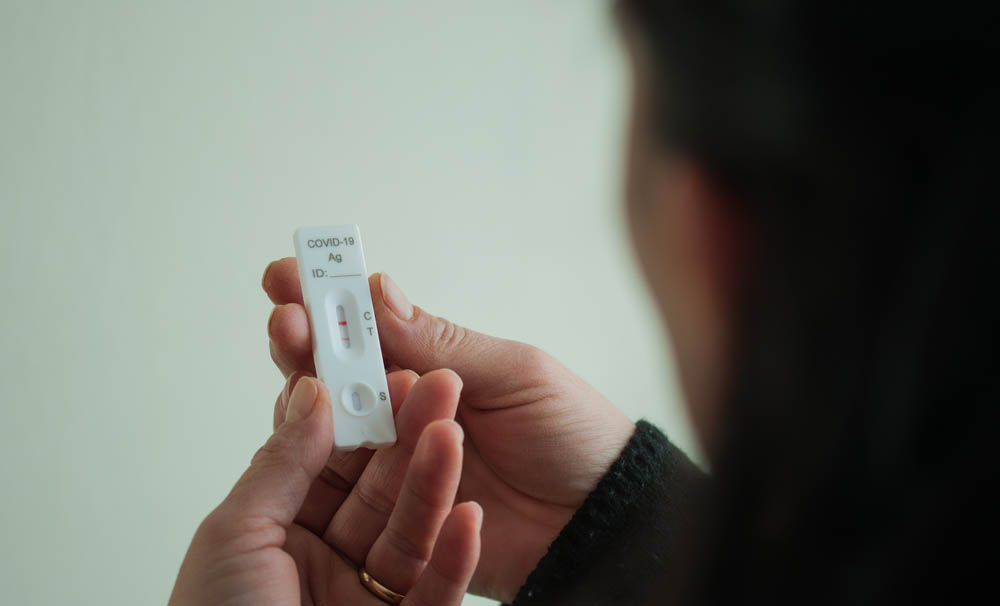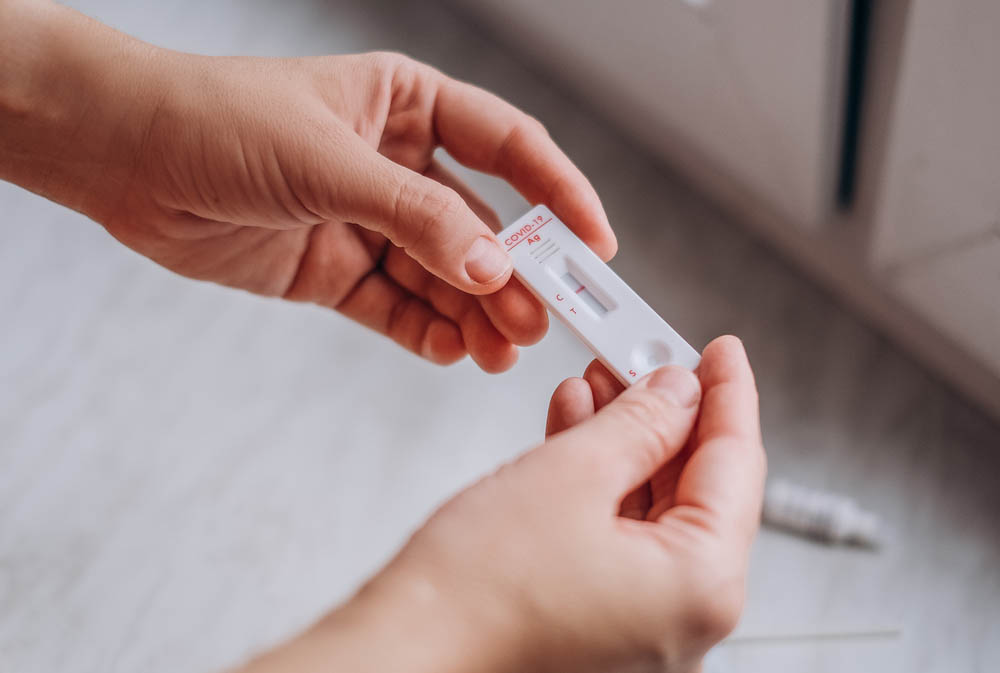With results within 30 minutes, rapid tests are valuable tools in detecting COVID-19.
However, before taking one, you should consider their limitations, specifically regarding accuracy.
What are rapid antigen tests for COVID-19?
Rapid antigen tests for COVID-19, also known as rapid tests, are diagnostic tests that provide quick results within minutes and are commonly used to detect the presence of the SARS-CoV-2 virus. These tests are performed using a cotton swab inserted into the nose or throat, and they can be conducted almost anywhere, including:
- Homes
- Doctors’ offices
- Pharmacies
- Other healthcare settings
Since these tests can provide results within 30 minutes, they’re helpful for immediate screening in various settings such as:
- Airports
- Arenas
- Workplaces
- Schools
- Theme parks
Aside from their quick turnaround time, here are more advantages of rapid tests compared to lab tests:
- More portable and accessible
- Less expensive
- Don’t require a specialist or lab for analysis
However, if you’re experiencing COVID-19 symptoms, it’s recommended to confirm rapid test results with a PCR test.
How accurate are rapid COVID-19 tests?
Rapid COVID-19 tests are primarily antigen tests that detect the presence of the virus that causes COVID-19.
In a 2021 study, results show that home antigen tests correctly identified 78.9% of positive cases within 0-12 days of symptom onset, with an accuracy rate of 96.2% within 3 days of symptom onset.
The accuracy of rapid tests is higher during the first week of symptoms (78.3% accuracy) compared to the second week (51% accuracy).
Different brands of rapid tests also have varying levels of accuracy.
In terms of false positive results, rapid tests rarely give false positives, with a 99.6% accuracy rate in identifying positive cases. They’re more reliable in confirming the infection status of those who exhibit COVID-19 symptoms.
While rapid COVID-19 tests offer quick results and are more accessible and portable than lab tests, consider their limitations and potential for false negatives.
It’s also recommended to confirm rapid test results with a PCR test, especially if symptoms persist or if there’s a need for definitive diagnosis.
When to take a rapid test?
To determine the most appropriate time for a rapid test, consider the onset of symptoms and the accuracy of the test during different stages of COVID-19 infection.
Since the rapid test’s accuracy in detecting COVID-19 declines with time, take the test as soon as possible after experiencing COVID-19 symptoms, preferably within the first week.
Remember that a negative rapid test result doesn’t completely rule out the possibility of COVID-19 infection, so fi symptoms persist or you suspect that you have COVID-19, it’s recommended to confirm the rapid test result with a PCR test, which is more accurate.
What to do if you get a positive result?

If your rapid COVID-19 test yields a positive result, take immediate action and follow the necessary steps to protect yourself and others.
Isolate yourself from others as soon as possible to prevent further spread of the virus. The Centers for Disease Control and Prevention (CDC) recommends a 5-day quarantine for those who test positive, unless they’re fully vaccinated or have had a positive COVID-19 result within the past 3 months.
Seek immediate medical attention if you experience any of these severe symptoms:
- Having trouble breathing
- New confusion
- Inability to stay awake
- Chest pain or pressure
- Pale gray or blue nails, skin or lips
People with darker skin may have difficulty recognizing symptoms of oxygen deprivation, so any discoloration of nails, skin or lips should be considered a medical emergency.
It’s also advisable to seek medical attention if you experience other symptoms that concern you.
Where can I find a rapid antigen test?
Rapid antigen tests are widely available in stores or pharmacies, clinics and testing centers.
While pharmacies often stock rapid antigen tests, like at-home antigen tests, clinics and testing centers offer rapid antigen testing services, where trained professionals administer the test and interpret the results.
The availability of these tests may vary depending on the location and demand. Check with local pharmacies, clinics or testing centers to know if they offer rapid antigen tests before visiting. Some healthcare providers may also provide information on where to find rapid antigen tests in the community.
When seeking a rapid antigen test, choose a reliable and approved brand for accurate results. Consult with healthcare professionals or refer to reputable sources for guidance on selecting the most appropriate rapid antigen test.
If you’re looking for FDA-approved rapid antigen tests online, check out our store here.
Key takeaway
Rapid COVID-19 tests are helpful for on-the-spot testing since they offer quick and convenient results, but their accuracy can vary among different brands. Compared to laboratory testing, these tests also have a higher risk of false negative results, especially for people who are asymptomatic.
It is recommended to confirm rapid test results with a PCR test, especially if you’re exhibiting COVID-19 symptoms.




















































